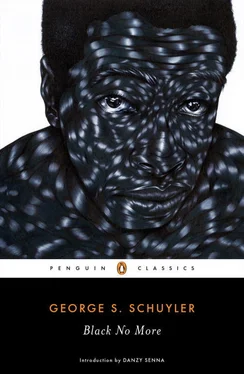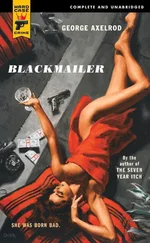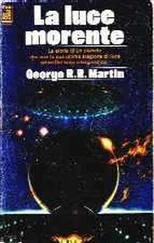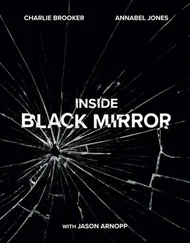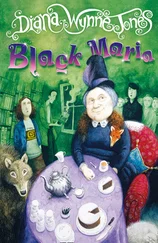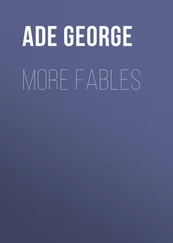With all the good fortune that had come to the Rev. McPhule as a result of engaging in the Lord’s work, he was still dissatisfied. He never passed a Baptist, Methodist or Holy Roller church without jealousy and ambition surging up within him. He wanted everybody in the county in his flock. He wanted to do God’s work so effectually that the other churches would be put out of business. He could only do this, he knew, with the aid of a message straight from Heaven. That alone would impress them.
He began to talk in his meetings about a sign coming down from Heaven to convince all doubters and infidels like Methodists and Baptists. His flock was soon on the nervous edge of expectancy but the Lord failed, for some reason, to answer the prayer of his right-hand man.
Rev. McPhule began to wonder what he had done to offend the Almighty. He prayed long and fervently in the quiet of his bedchamber, except when he didn’t have company, but no sign appeared. Possibly, thought the evangelist, some big demonstration might attract the attention of Jesus; something bigger than the revivals he had been staging. Then one day somebody brought him a copy of The Warning and upon reading it he got an idea. If the Lord would only send him a nigger for his congregation to lynch! That would, indeed, be marked evidence of the power of Rev. Alex McPhule.
He prayed with increased fervency but no African put in an appearance. Two nights later as he sat before his altar, his “Bible” clutched in his hands, a bat flew in the window. It rapidly circled the room and flew out again. Rev. McPhule could feel the wind from its wings. He stood erect with a wild look in his watery blue eyes and screamed, “A sign! A sign! Oh, Glory be! The Lord has answered my prayer! Oh, thank you, God! A sign! A sign!” Then he grew dizzy, his eyes dimmed and he fell twitching across the altar, unconscious.
Next day he went around Happy Hill telling of his experience of the night before. An angel of the Lord, he told the gaping villagers, had flown through the window, alighted on his “Bible” and, kissing him on his forehead, had declared that the Lord would answer his prayer and send a sign. As proof of his tale, Rev. McPhule exhibited a red spot on his forehead which he had received when his head struck the marble altar top but which he claimed marked the place where the messenger of the Lord had kissed him.
The simple folk of Happy Hill were, with few exceptions, convinced that the Rev. McPhule stood in well with the celestial authorities. Nervous and expectant they talked of nothing but The Sign. They were on edge for the great revival scheduled for Election Day at which time they fervently hoped the Lord would make good.
At last the great day had arrived. From far and near came the good people of the countryside on horseback, in farm wagons and battered mudcaked flivvers. Many paused to cast their ballots for Givens and Snobbcraft, not having heard of the developments of the past twenty-four hours, but the bulk of the folk repaired immediately to the sacred groove where the preaching would take place.
Rev. Alex McPhule gloated inwardly at the many concentric circles of upturned faces. They were eager, he saw, to drink in his words of wisdom and be elevated. He noted with satisfaction that there were many strange people in the congregation. It showed that his power was growing. He glanced up apprehensively at the blue heavens. Would The Sign come? Would the Lord answer his prayers? He muttered another prayer and then proceeded to business.
He was an impressive figure today. He had draped himself in a long, white robe with a great red cross on the left breast and he looked not unlike one of the Prophets of old. He walked back and forth in the little circle surrounded by close-packed humanity, bending backward and forward, swinging his arms, shaking his head and rolling his eyes while he retold for the fiftieth time the story of the angel’s visit. The man was a natural actor and his voice had that sepulchral tone universally associated with Men of God, court criers and Independence Day orators. In the first row squatted the Happy Hill True Faith Choir of eight young women and grizzled old man Yawbrew, the tub-thumper, among them. They groaned, amended, and Yes-Lorded at irregular intervals.
Then, having concluded his story, the evangelist launched into song in a harsh, nasal voice:
I done come to Happy Hill to save you from sin,
Salvation’s door is open and you’d better come in,
Oh, Glory Hallelujah! you’d better come in.
Jesus Christ has called me to save this white race,
And with His Help I’ll save you from awful disgrace.
Oh, Glory Hallelujah! We must save this race.
Old man Yawbrew beat on his tub while the sisters swayed and accompanied their pastor. The congregation joined in.
Suddenly Rev. McPhule stopped, glared at the rows of strained, upturned faces and extending his long arms to the sun, he shouted:
“It’ll come I tell yuh. Yes Lord, the sign will come—ugh. I know that my Lord liveth and the sign will come—ugh. If—ugh—you just have faith—ugh. Oh, Jesus—ugh. Brothers and Sisters—ugh. Just have faith—ugh—and the Lord—ugh—will answer your prayers…. Oh, Christ—ugh. Oh, Little Jesus—ugh…. Oh, God—ugh—answer our prayers…. Save us—ugh. Send us the Sign….”
The congregation shouted after him “Send us the Sign!” Then he again launched into a hymn composed on the spot:
He will send the Sign,
Oh, He will send the Sign
Loving Little Jesus Christ
He will send the Sign.
Over and over he sang the verse. The people joined him until the volume of sound was tremendous. Then with a piercing scream, Rev. McPhule fell on all fours and running among the people hugged one after the other, crying “Christ is Love! … He’ll send the Sign! … Oh, Jesus! Send us The Sign!” The cries of the others mingled with his and there was a general kissing, embracing and rolling there in the green-walled grove under the midday sun.
—
As the sun approached its zenith, Mr. Arthur Snobbcraft and Dr. Samuel Buggerie, grotesque in their nondescript clothing and their blackened skins, trudged along the dusty road in what they hoped was the direction of a town. For three hours, now, they had been on the way, skirting isolated farmhouses and cabins, hoping to get to a place where they could catch a train. They had fiddled aimlessly around the wrecked plane for two or three hours before getting up courage enough to take to the highroad. Suddenly they both thrilled with pleasure somewhat dampened by apprehension as they espied from a rise in the road a considerable collection of houses.
“There’s a town,” exclaimed Snobbcraft. “Now let’s get this damned stuff off our faces. There’s probably a telegraph office there.”
“Oh, don’t be crazy,” Buggerie pleaded. “If we take off this blacking we’re lost. The whole country has heard the news about us by this time, even in Mississippi. Let’s go right in as we are, pretending we’re niggers, and I’ll bet we’ll be treated all right. We won’t have to stay long. With our pictures all over the country, it would be suicidal to turn up here in one of these hotbeds of bigotry and ignorance.”
“Well, maybe you’re right,” Snobbcraft grudgingly admitted. He was eager to get the shoe polish off his skin. Both men had perspired freely during their hike and the sweat had mixed with the blacking much to their discomfort.
As they started toward the little settlement, they heard shouts and singing on their left.
“What’s that?” cried Dr. Buggerie, stopping to listen.
“Sounds like a camp meeting,” Snobbcraft replied. “Hope it is. We can be sure those folks will treat us right. One thing about these people down here they are real, sincere Christians.”
Читать дальше
